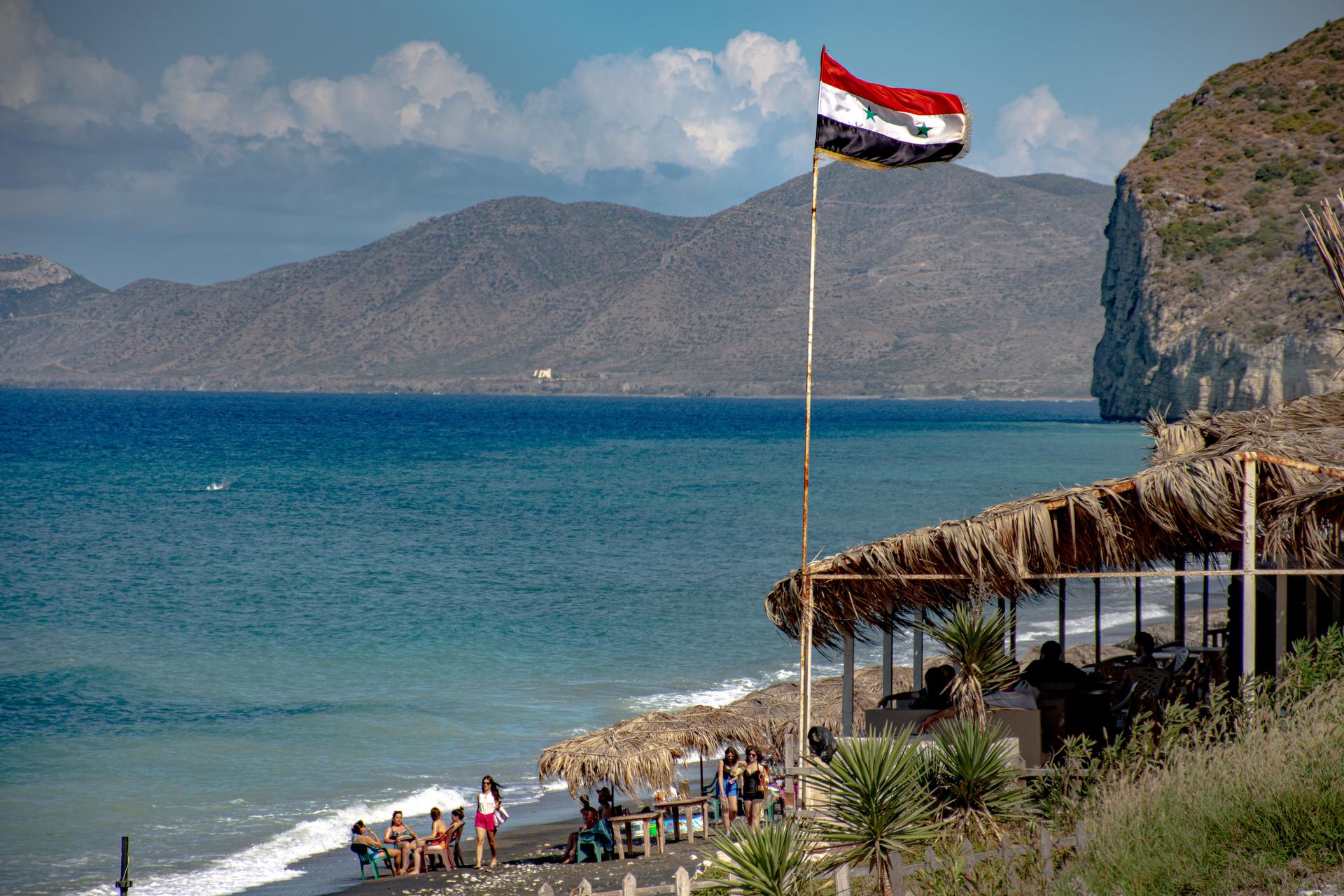Syrian Arab Republic🇸🇾

Syria is a country in the Middle East located on the Mediterranean Sea and bordered by Turkey, Iraq, Jordan, Israel, and Lebanon. This country is known for its rich historical and cultural roots, such as the ancient city of Palmyra, Aleppo, the Umayyad Mosque, and the Saint Simon Church. Moreover, Syria is famous for its mouth-watering dishes like falafel, hummus, and shawarma. The ongoing civil war since 2011 has greatly affected Syria’s relationship with its neighbors and the world.
⚠️Things you should avoid⚠️
- Avoid discussing politics or the ongoing civil war.
- Avoid travel in areas close to the borders with Turkey, Iraq, Jordan, Israel, and Lebanon.
- Avoid public gatherings or demonstrations, which can turn violent.
- Avoid travel during religious observances or holidays when tensions can heighten.
- Avoid carrying large amounts of cash or other valuables.
- Avoid travelling at night, especially outside of major metropolitan areas.
- Avoid nonessential travel to Syria due to the ongoing conflict.
- Avoid police and military facilities; photographing such facilities is strictly prohibited.
- Avoid walking alone at night, especially women, due to risk of sexual assault.
- Avoid drinking tap water without boiling or treating it first.
Overall
2
Crime 🔫
2
Syria's crime rating is low due to its ongoing civil war, with most crime becoming secondary to the conflict. Everyday crime is rampant in areas such as Aleppo and Damascus due to the lack of security and police force. Kidnapping, robbery, and theft are common occurrences.
Terrorism 💣
1
Syria has a recurring problem with terrorism due to the activities of different extremist groups. Terrifying incidents, like the bombings in the capital Damascus and the northern city of Aleppo by ISIS, have plagued the country in the recent decade since the civil war started in 2011.
War ⚔️
1
Given the decade-long civil war (since 2011), Syria has a critically low score for war safety. Many areas, primarily in the north and east like Idlib and Raqqa, witness continuous combat, and unexploded ordinance and landmines remain a significant threat throughout the country.
Natural Disasters 🌊
7
Natural disasters in Syria are relatively rare. The country occasionally experiences droughts and earthquakes, but these tend not to result in significant damage or loss of life. Sandstorms can happen, particularly in desert areas.
Medical Care 🏥
2
Medical care in Syria has deteriorated significantly due to the ongoing civil war. Access to healthcare is extremely limited, and many medical facilities have been damaged or destroyed. Medical supplies are scarce, and many illnesses cannot be adequately treated.
Tap Water Quality 💧
3
The quality of tap water in Syria varies greatly. In some areas, particularly in larger cities, it can be safe to drink, but in many other areas, especially rural and conflict-affected areas, it is unsafe.
Disease Burden 🤒
2
Due to the ongoing war, healthcare infrastructure is weakened, leading to outbreaks of diseases such as polio, measles, and typhoid. Leishmaniasis, a skin disease transmitted by sand flies, has also increased, especially in Aleppo.
Corruption 💸
2
Corruption is widespread in Syria. Embezzlement, bribery, and nepotism are pervasive in many sectors of society, including within the government. Corruption has been exacerbated by the ongoing civil war.
Safety for Women ♀️
2
Women's safety in Syria is extremely compromised due to the ongoing conflict. Sexual assault, harassment, and violence against women are significant issues. There are also reports of forced marriages, particularly among refugee populations.
Safety for Queer People 👬
1
Syria is not safe for queer individuals. Homosexual activity is criminalized, and social attitudes towards LGBTQ+ individuals remain highly negative. Violence and discrimination based on sexual orientation and gender identity are common.
Censorship 📺
1
The Syrian government maintains strict control over the media and actively censors news outlets and social media. In recent years, journalists have been targeted, detained, or even killed for reporting on the conflict.
Public Transportation 🚌
4
Public transportation in Syria has been significantly disrupted by the conflict. Buses and trains do operate but are unreliable and often unsafe. Road travel is risky due to poor road conditions and the threat of violence.
Other useful information
🔒 How safe is it?
Overall, Syria is not safe, mainly due to the ongoing war since 2011. Kidnapping, terrorist bombings, and armed conflict are common throughout the country. Travel should be avoided at all costs.
🏰 Embassies in this Country
There are numerous foreign embassies in Syria, primarily located in the capital city of Damascus. These include the embassies of Russia, Iran, and Venezuela.
💉 Recommended Vaccinations
Before traveling to Syria, the recommended vaccinations include Hepatitis A, Hepatitis B, Typhoid, Cholera, Yellow Fever, Rabies, Polio, and annual influenza shot.
🐍 Dangerous Animals
There are various dangerous animals in Syria, including poisonous snakes and spiders. The deadly Palestinian viper snake is found throughout the country. Sandflies, which spread Leishmaniasis, are also widespread.
🛂 Visa Requirements
The visa policies in Syria have been complicated due to the ongoing civil war. Visitors are required to apply for a visa from a Syrian embassy or consulate prior to their arrival.
💲 Currency
The currency in Syria is the Syrian Pound (SYP). Currency exchanges can be made at banks, exchange bureaus, and some hotels.
💳 Credit Card Acceptance
Credit card acceptance in Syria is extremely limited due to international sanctions. Many businesses only accept cash.
🧑🏭 Is it possible to work and travel in this country?
Work and travel in Syria is currently not recommended due to the ongoing civil war and conflict. The security situation remains unstable, and travel is dangerous.
💵 Cost of Travel and Living
The cost of living and travel in Syria is relatively low. However, the cost may increase when considering potential security-related expenses. Additionally, finding secure and quality accommodation can be a challenge.